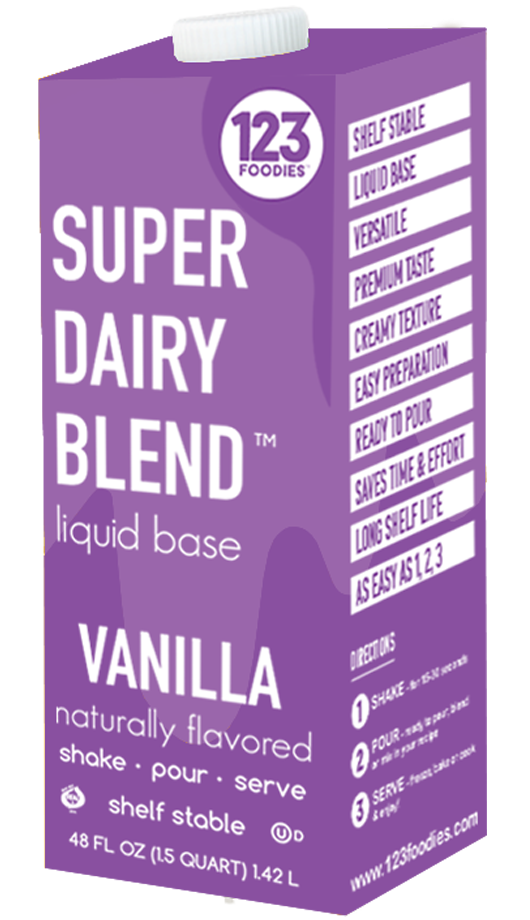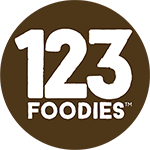Four Important Legs to the Foodservice Sales Table
As important as anything else, a table is much more stable when it is supported by four legs. And a distributor sales network needs to be stable if nothing else. Being fairly new to the foodservice distribution network, we’re able to offer some outsider views to what we’re experiencing. In that regard, here are the Four Important Legs to the Foodservice Sales table.
But before we begin our sales journey together, let’s first talk about the two kinds of sales. They are hunters and farmers. Hunters are sales people who are naturally great at making introductions and getting new clients onboard. Farmers are sales people who are better at supporting and nurturing an account. They may help grow the business by offering new items to old clients, but they are rarely going to bring in an entirely new customer.
The distributor network has very few hunters, and most of the farmers are more like gatherers.
Having said that, let’s more on to the four important legs to the foodservice sales table.
 According to Forbes, “Leaders must nurture an empowered, highly experienced and technically aware distributor salesforce with the appropriate training in problem-solving and solution-selling. Sales teams should be backed by culinary, insight and marketing services that have strong connections to leading supplier partners and broker sales representatives.”
According to Forbes, “Leaders must nurture an empowered, highly experienced and technically aware distributor salesforce with the appropriate training in problem-solving and solution-selling. Sales teams should be backed by culinary, insight and marketing services that have strong connections to leading supplier partners and broker sales representatives.”
Phew, that’s a lot to say. But in reality, how many distributor sales representatives are actually in alignment with that definition? Maybe the top 5%? Maybe 10%, if you’re lucky. Let’s look at what the Four Important Legs to the Foodservice Sales Table look like from a new product.
Leg 1: Empowered Sales Team
By definition, that means your sales team can bring in new products and offer promotions on the fly. Empowerment is meaningless without the ability to spend money on your behalf. It may be a limited amount. But if your sales team cannot find a new item and bring that item to customers, they are not empowered.
Here’s a quick question for you: Are your sales representatives truly empowered? One of the biggest complaints most restaurant operators have is that their representatives cannot do much for them. This makes them not fully trust the representative, and it makes them frustrated in their ability to try new things.
From the outside looking in, this has been our experience. At 123 Foodies, unless we can align a restaurant with a distributor has had no luck with, we pretty much don’t get anywhere. But once we do align those connections, the distributor is all over offering our products.
Leg 2: Highly Experienced
As with any sales team, this is a mixed bag. We have worked with a few very experienced sales people at 123 Foodies. But most of our engagements have been with sales people just starting out. That is primarily because the sales members just starting out are looking for a point of difference more than an established account manager.
The thing is, the point of difference we offer is valuable to nearly every restaurant operator.
Next time you’re with a restaurant operator, ask them if they have a freezer and refrigerator space problem that a shelf stable dairy product wouldn’t solve. Every call we’ve been on so far, every restaurant we’ve talked to has said the same thing: “I’m always looking for anything that will save space in my freezer or refrigerator.”
The problem for foodservice distributors is, their most experienced sales representatives are also the ones who don’t need or want to hunt any longer. When we’re on calls with them, their comment is: “Why should I bring this to my customers? I’ve already got their business, so I don’t need it, and I don’t want to teach them about it.” But by thinking that way, they become order takers and not true sales people. And that makes their accounts vulnerable. All of their accounts.
Leg 3: Problem-solving and Solution-selling
 This is an important leg in our selling process table. To create the Four Important Legs to the Foodservice Sales table, we are going to need problem solvers and solution finders. The problem here again is, how much power do distributor sales people have in offering new solutions? Most simply use solutions their managers tell them they can use. And all of that is out of a catalog.
This is an important leg in our selling process table. To create the Four Important Legs to the Foodservice Sales table, we are going to need problem solvers and solution finders. The problem here again is, how much power do distributor sales people have in offering new solutions? Most simply use solutions their managers tell them they can use. And all of that is out of a catalog.
“working as a restaurant owner for many years, and now talking to restaurant operators, I can’t tell you how many times the answer to a problem was: ‘We don’t carry that.’ And suddenly the table only has three legs and is all wobbly because the restaurant operator is out looking for the solution elsewhere.”
What might work better is for foodservice distributors to be out looking for new items to add to their catalog, rather than having to react to their so-called clients to ask them for something and then tell them they don’t offer it.
Our experience from the outside looking in is that the solution selling and problem solving side of the distributor business isn’t very strong. In many cases, it simply doesn’t exist.
Leg 4: Culinary, Industry Insights & Marketing:
Let’s take this in three steps, because they don’t really go hand-in-hand. Each is important, but each also needs its own focus.
- Culinary is important, but not the way most distributors and even restaurant operators think it is. Culinary in the restaurant industry is about being unique, different and better. It’s about making products that a guest cannot make at home. It’s about brand culinary with items that fit their business in a way that the guest will want to come back for.
- Industry Insights is important because restaurant operators are always looking for new ways to make their restaurants relevant. What consumers are looking for is a new way to eat something they know they already love. A distributor’s job is to be constantly offering those ideas.
- Marketing for the restaurant industry is essential, however most foodservice distributors have done more in recent years to harm the marketing efforts than improve them. The idea is to offer a marketing program for free if the operator agrees to buy a certain amount of their groceries from the distributor under contract. The problem with this approach is that it makes the marketing worthless (and we mean that literally). So, the distributor makes the menu, advertising, social media et al as cheaply as possible, and the local restaurants get a poorly created menu, horrible social media marketing and an off brand advertising campaign in return.
This is why we offer direct connections to our customers. When a restaurant operator takes on our product, we talk them through how to use the product, along with offering marketing support to make sure the product is being introduced properly to consumers.
Find Out More:
To find out more about 123 Foodies Super Dairy Blends, follow the link here: We’re looking for distributor partners and available for group meetings, shows and sales ride alongs.






Leave A Comment
You must be logged in to post a comment.